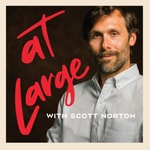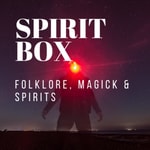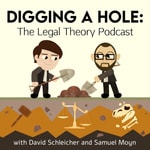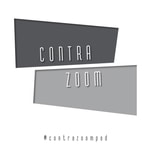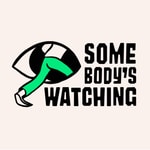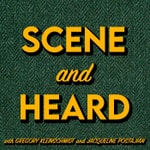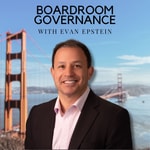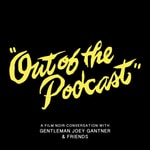Cold War Cinema – Details, episodes & analysis
Podcast details
Technical and general information from the podcast's RSS feed.
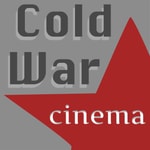
Cold War Cinema
Jason Christian and Anthony Ballas
Frequency: 1 episode/27d. Total Eps: 23

Recent rankings
Latest chart positions across Apple Podcasts and Spotify rankings.
Apple Podcasts
🇩🇪 Germany - filmHistory
30/07/2025#83🇺🇸 USA - filmHistory
30/07/2025#30🇩🇪 Germany - filmHistory
29/07/2025#87🇩🇪 Germany - filmHistory
28/07/2025#77🇨🇦 Canada - filmHistory
26/07/2025#90🇬🇧 Great Britain - filmHistory
19/07/2025#91🇬🇧 Great Britain - filmHistory
18/07/2025#80🇬🇧 Great Britain - filmHistory
17/07/2025#72🇬🇧 Great Britain - filmHistory
16/07/2025#55🇬🇧 Great Britain - filmHistory
15/07/2025#36
Spotify
No recent rankings available
Shared links between episodes and podcasts
Links found in episode descriptions and other podcasts that share them.
See allRSS feed quality and score
Technical evaluation of the podcast's RSS feed quality and structure.
See allScore global : 63%
Publication history
Monthly episode publishing history over the past years.
S1 Ep. 10: Salt of the Earth (Herbert J. Biberman, 1954)
Season 1 · Episode 10
mercredi 14 août 2024 • Duration 01:16:07
Join hosts Jason Christian, Anthony Ballas, and Tim Jones as they discuss Herbert J. Biberman's iconic independent masterpiece Salt of the Earth (1954). The film is based on the real-life Empire Zinc strike in 1951 in Grant County, New Mexico, and was self-financed and made entirely outside the studio system using mostly non-professional actors, many of them actual miners playing versions of themselves. Jason compares the the film to Gillo Pontecorvo's 1966 masterpiece The Battle of Algiers in terms of its scrappy production, dialectical sctructure, and Marxist themes. (You can hear him gush about that film on another podcast, linked here.) Biberman was one of the Hollywood Ten and he was blacklisted, as were the screenwriter, Michael Wilson, and the producer, Paul Jarrico. The Hollywood apparatus and law enforcement attempted to sabotage the production of Salt of the Earth on numerous occasions, going as far as getting the lead actress, Rosaura Revueltas, deported to Mexico on trumped up charges. Although she was from a prominent family of artists and writers, she was blacklisted and never acted in another Mexican film.
As always please suscribe to the podcast if you like what you hear, and don't forget to leave us a review! Happy listening!
S1 Ep. 9: Quicksand (Irving Pichel, 1950)
Season 1 · Episode 9
mardi 23 juillet 2024 • Duration 01:22:49
Join hosts Jason Christian, Anthony Ballas, and Tim Jones as they discuss Irving Pichel's 1950 crime thriller Quicksand, starring Mickey Rooney, Peter Lorre, Jeanne Cagney, and Barbara Bates. The film's plot revolves around Rooney's character making one bad decision after another, shattering his moral compass along the way. The implicit message, heavy-handed in its delivery, is that poverty breeds crime. Pichel was one of the so-called "unfriendly nineteen" brought before HUAC hearings in 1947. That group was whittled down to ten and later dubbed the Hollywood Ten. Pichel was blacklisted along with the others who refused to testify.
We hope you enjoy this episode. Please subscribe and rate the show if you feel so inclined. And if you have any comments, recomendations, or questions, feel free to email them to us at coldwarcinemapod@gmail.com. Happy listening!
S1 Ep. 1: The Lawless (Joseph Losey, 1950)
Season 1 · Episode 1
lundi 1 janvier 2024 • Duration 01:09:47
Join hosts Jason, Anthony, and Tim as they discuss Joseph Losey’s 1950 crime film The Lawless, an underseen and somewhat uneven example of what the filmmaker and critic Thom Andersen calls film gris, or socially conscious crime cinema during the film noir years (1940s through the 1950s). Losey was blacklisted in 1952, after his name was mentioned during the infamous House Un-American Activities Committee (HUAC) hearings. He subsequently relocated to London, where he had a second (and admittedly more artistically accomplished) life as a film director, collaborating, mostly notably, with the Nobel Prize–winning playwright and screenwriter, Harold Pinter.
S1 Ep. 8: I Can Get It for You Wholesale (Michael Gordon, 1951)
Season 1 · Episode 8
lundi 8 juillet 2024 • Duration 01:17:11
Join hosts Jason Christian, Anthony Ballas, and Tim Jones as they discuss Michael Gordon's 1951 drama I Can Get It for You Wholesale, a film that explores the cutthroat fashion industry in New York City's garment district. It was written by Abraham Polonsky and Vera Caspary and stars Susan Hayward, Dan Dailey, and George Sanders. Gordon and Polonsky were blacklisted during the infamous HUAC anti-communist hearings. After the blacklist lifted, Gordon returned to Hollywood to direct several light-hearted comedies. We hope you enjoy this episode and, as always, please subscribe and rate the show if you feel so inclined!
BONUS: Red Hollywood (Thom Andersen, 1996)
Season 1
vendredi 14 juin 2024 • Duration 53:28
This episode is a slight departure for this season—and we had fun with it. Rather than taking on a film directed by a blacklisted director, as usual, we're discussing a groundbreaking video essay about blacklisted directors. Thom Andersen's Red Hollywood (1996) discusses several of the directors and films we've discuss so far on the podcast. Andersen's goal in the film is to curate a list of overlooked films and demonstrate the bold themes that many of these directors were attempting to inject into some of them, much of which was later used as evidence against them in future HUAC hearings. The film features interviews with Abraham Polonsky, Ring Larnder, Jr., Paul Jarrico, and Alfred Levitt. Andersen (b. 1943) is the originator of the term "film gris," or socially conscious crime pictures from 1947 to 1952. He is perhaps most renowned for his experimental video essay Los Angeles Plays Itself (2003).
*Fact checking ourselves:
—Tim implies that Kafka (yes, Kafka) is Germany, but in fact he only wrote in German. He was from Prague of course.
—Jason says that he lived in communes for 15 years, but actually it was about ten (oops).
We hope you enjoy!
S1 Ep. 7: Force of Evil (Abraham Polonsky, 1948)
Season 1 · Episode 7
vendredi 31 mai 2024 • Duration 01:09:42
Join hosts Jason Christian, Anthony Ballas, and Tim Jones as they discuss Abraham Polonsky’s debut film Force of Evil, a 1948 crime picture starring John Garfield, Beatrice Pearson, and Thomas Gomez. Force of Evil is one of thirteen movies the critic and filmmaker Thom Andersen identifies as film gris, or socially conscious crime cinema made from 1947 to 1951, during the height of the notorious House Un-American Activities hearings. In 1951, Polonsky refused to testify before his own HUAC hearing, and was subsequently blacklisted. He only directed two other films, Tell Them Willie Boy Is Here (1969) and Romance of a Horsethief (1971), and remained a committed marxist all his life. We hope you enjoy this episode!
S1 Ep. 6: Body and Soul (Robert Rossen, 1947)
Season 1 · Episode 6
lundi 29 avril 2024 • Duration 01:17:38
Join hosts Jason, Anthony, and Tim as they discuss Robert Rossen’s Body and Soul, a 1947 boxing film that critic Thom Andersen categorizes as film gris, or socially conscious crime cinema during the film noir years (1940s through the 1950s). Rossen testified at a HUAC hearing in 1951, pleaded the Fifth Amendment, and was blacklisted. Two years later, he testified again and this time he named 57 names and was given his career back in Hollywood. Rossen went on to direct several more features, including the celebrated pool epic The Hustler (1961) and Lilith (1964), starring Warren Beatty and Jean Seberg. We hope you enjoy!
S1 Ep. 5: He Ran All the Way (1951) & The Hollywood Ten (1950) dir. John Berry
Season 1 · Episode 5
jeudi 28 mars 2024 • Duration 01:20:27
Join hosts Jason, Anthony, and Tim as they discuss John Berry's He Ran All the Way, a 1951 crime drama in the film noir and film gris traditions. The film stars John Garfield, who was shortly thereafter blacklisted and died of a heart attack at age 39. The screenplay is written by Hugo Butler and Dalton Trumbo, both blacklisted, as was the director, John Berry.
We also discuss Berry's short documentary The Hollywood Ten (1950), a fundarising agitprop documentary about the ten Hollywood personnel jailed in federal prison for contempt of congress in 1050. Here are their names:
- Alvah Bessie, screenwriter
- Herbert Biberman, screenwriter and director
- Lester Cole, screenwriter
- Edward Dmytryk, director
- Ring Lardner Jr., screenwriter
- John Howard Lawson, screenwriter
- Albert Maltz, screenwriter
- Samuel Ornitz, screenwriter
- Adrian Scott, producer and screenwriter
- Dalton Trumbo, screenwriter
For more inormation on the 1945 "Black Friday" Hollywood strike that Tony references in the episode, check out this article he co-wrote with Gerald Horne!
We hope you enjoy!
S1 Ep. 4: So Young, So Bad (Bernard Vorhaus, 1950)
Season 1 · Episode 4
jeudi 14 mars 2024 • Duration 01:21:56
Join hosts Jason, Anthony, and Tim as they discuss Bernard Vorhaus's So Young, So Bad, a 1950 drama about a girls' reform school. The film dares to imagine therapy instead of punishment as a tool to "cure" antisocial behavior. Vorhaus was blacklisted in 1951 after his name was mentioned during the infamous House Un-American Activities Committee (HUAC) hearings. He subsequently relocated to England, where he lived the rest of his life. The opening clip was taken from a fascinating interview of Vorhaus by Ira Gellen in which Vorhaus reflects on his life and career. We hope you enjoy!
S1 Ep. 3: Try and Get Me! A.K.A. The Sound of Fury (Cy Endfield, 1950)
Season 1 · Episode 3
lundi 19 février 2024 • Duration 01:15:26
Join hosts Jason, Anthony, and Tim as they discuss Cy Endfield’s Try and Get Me!, also know as The Sound of Fury, a 1950 crime film that critic Thom Andersen includes on his list of film gris movies, or socially conscious crime cinema during the film noir years (1940s through the 1950s). Endfield was blacklisted in 1951 after his name was mentioned during the infamous House Un-American Activities Committee (HUAC) hearings. He subsequently relocated to London, where he went on to make a number of celebrated films, including Hell Drivers (1957) and Zulu (1964). In this episode we cite an essay by the Chicago critic Jonathan Rosenbaum that is included in his excellent 1997 book Movies as Politics. We hope you enjoy!
